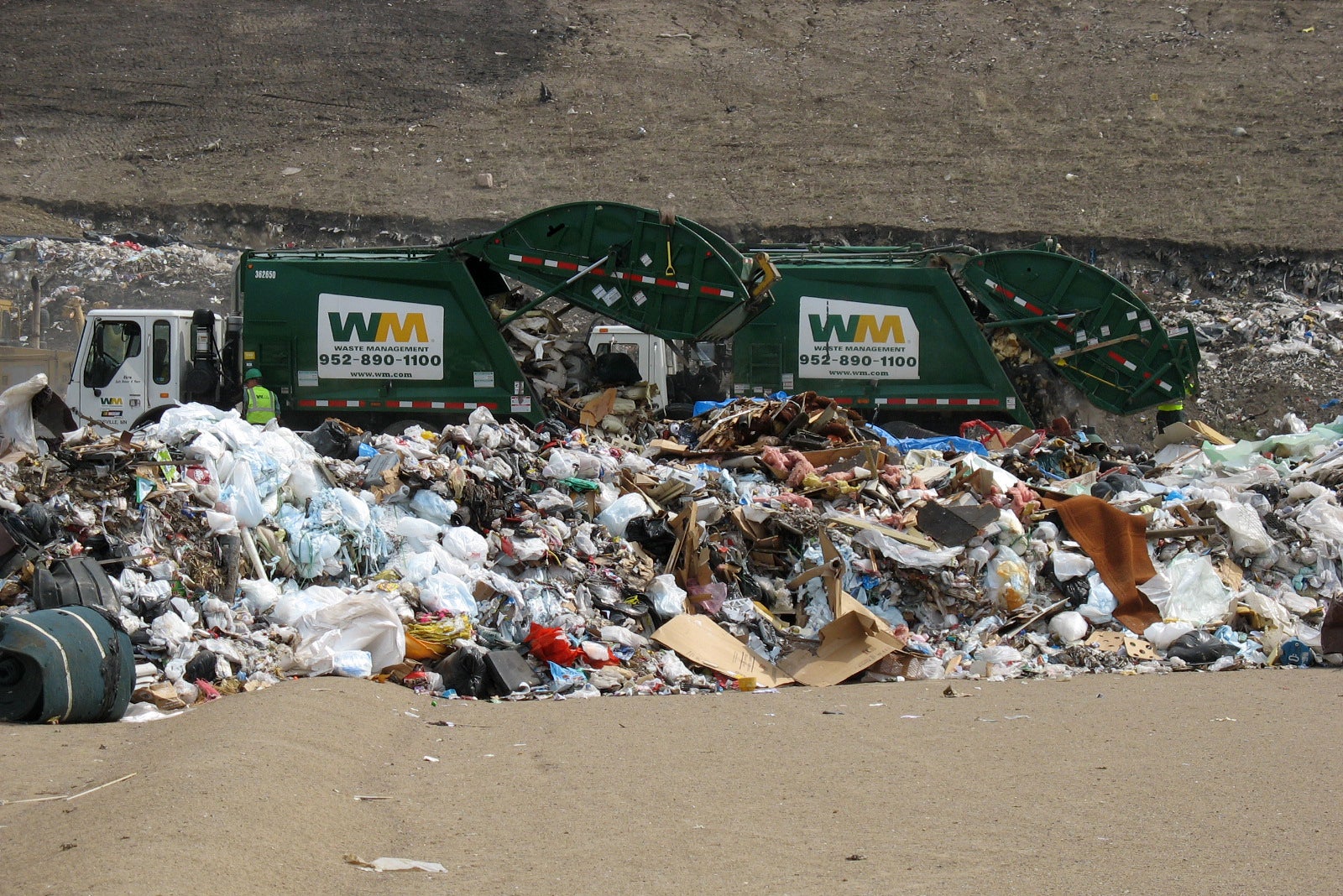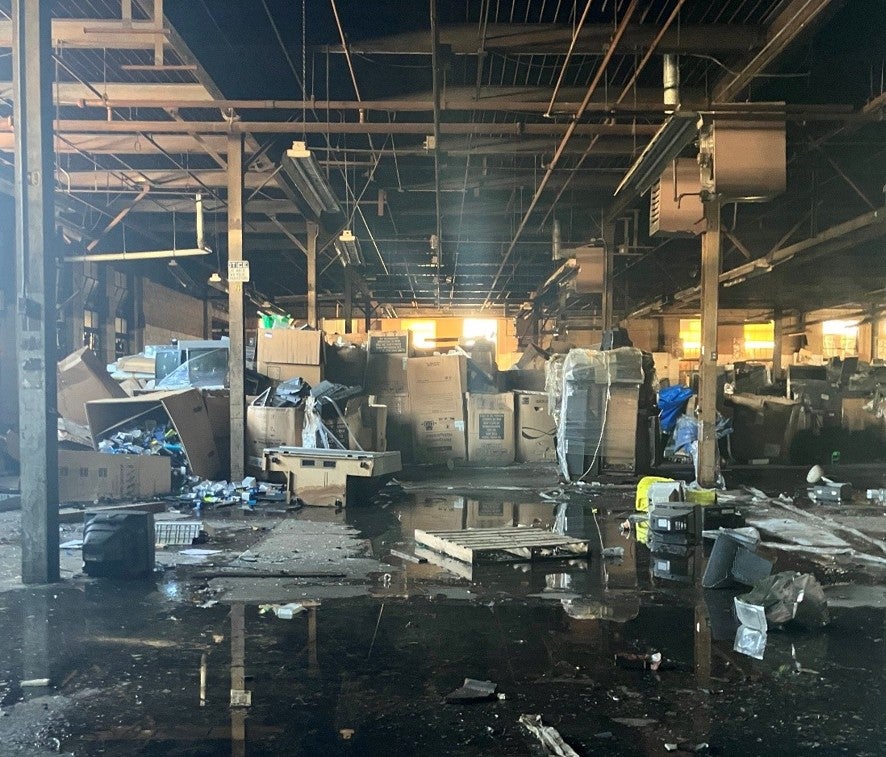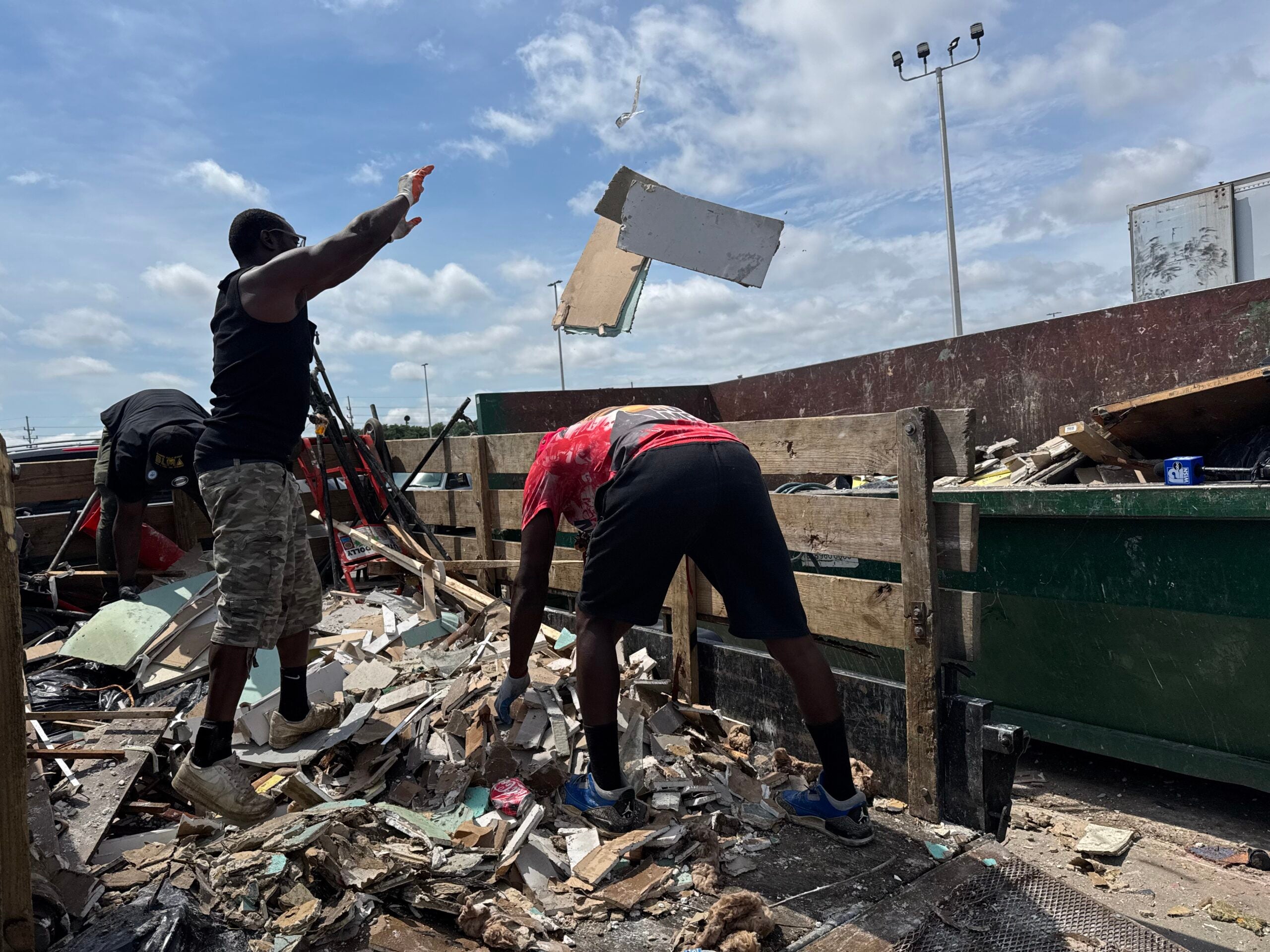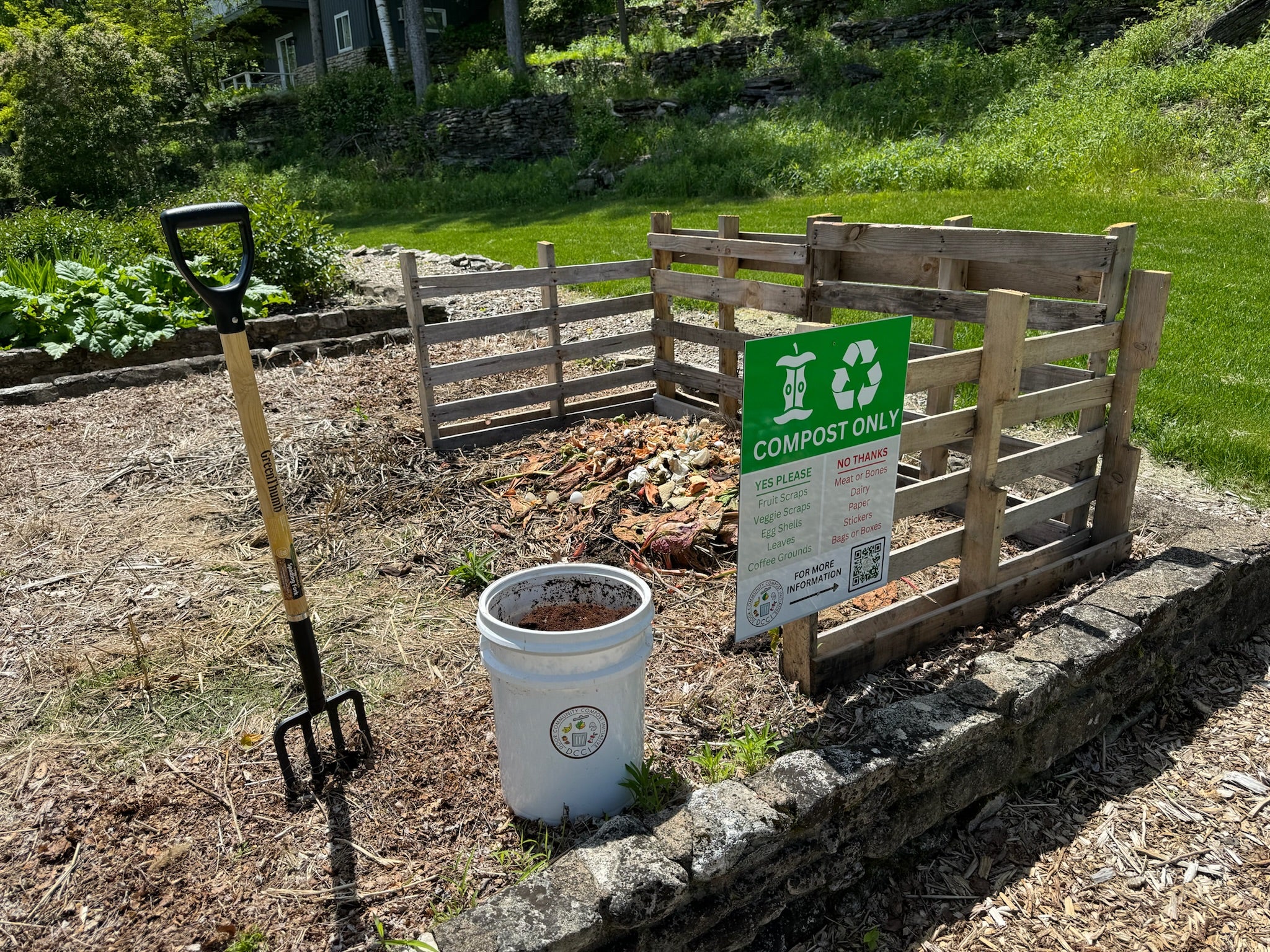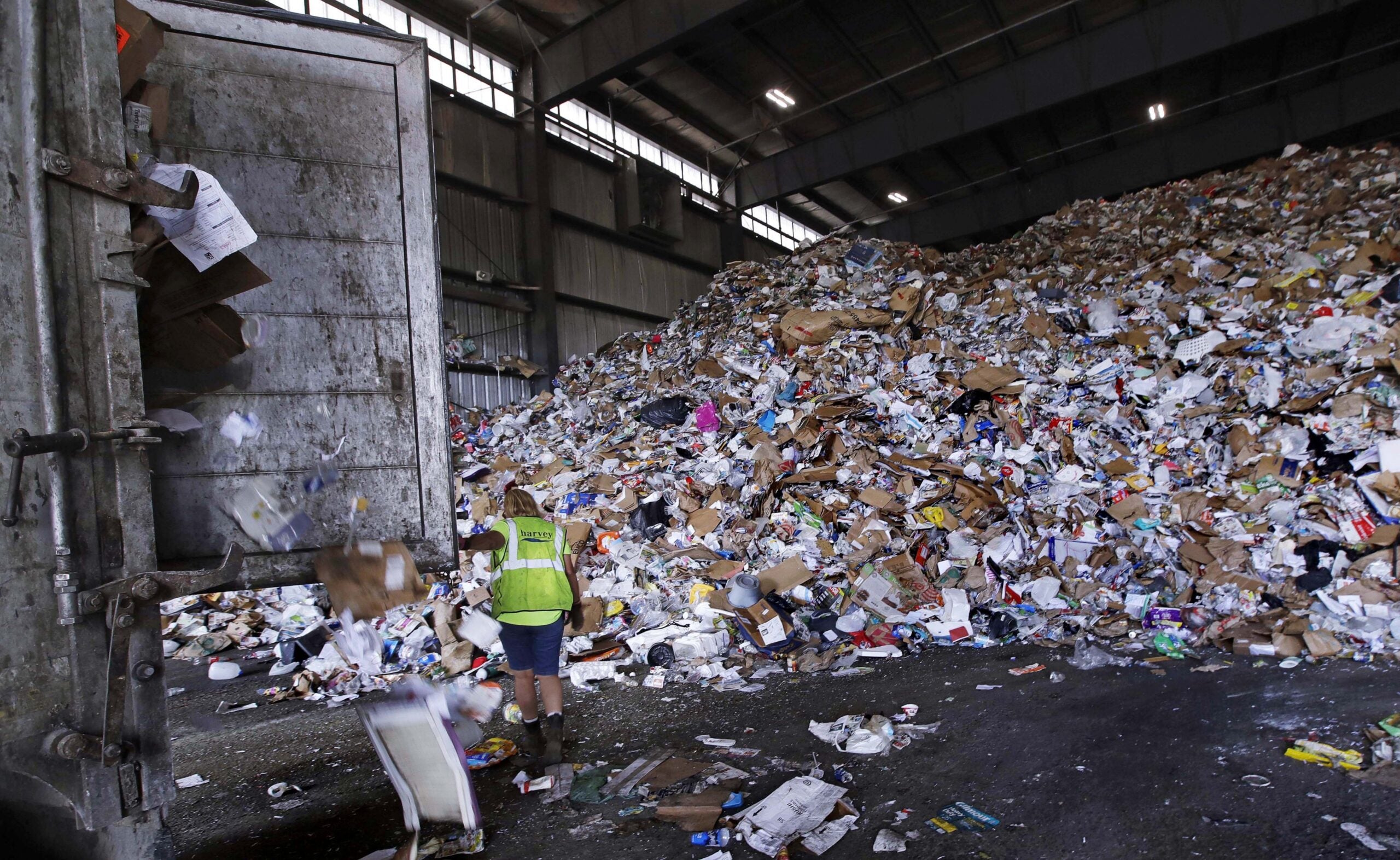When Dunn County’s Solid Waste & Recycling Division opted to close four of eight garbage drop-off sites around the county in March, recycling specialist Megen Hines fielded the angry calls.
“People (were) saying, ‘Oh, I’m just going to burn this’ or ‘I’m going to dump it in the ditch,’” she said, acknowledging their frustrations about their limited options for unloading their trash.
The spread of COVID-19, and the subsequent response intended to keep the virus at bay, has highlighted the dependency for services like waste management — that prior to the pandemic were readily available.
News with a little more humanity
WPR’s “Wisconsin Today” newsletter keeps you connected to the state you love without feeling overwhelmed. No paywall. No agenda. No corporate filter.
“My colleagues and I across the state, across this nation, do our jobs beautifully,” said Meleesa Johnson, chair of the Wisconsin Counties Solid Waste Management Association who runs a waste management facility in Ringle, near Wausau.
But it’s become more of a challenge as staff who haul away garbage try to stay safe, too. To that end, Johnson said her staff has been advised of new rules to address some of the concerns surrounding COVID-19, because it’s unclear how the virus behaves on certain surfaces.
New Rules
Garbage is never safe, Johnson said, and that reality has become a source for increased anxiety among waste management staff because of COVID-19.
Household waste is some of the most dangerous, because regulations on hazardous and infectious waste don’t apply to the solid waste society produces. Compounding concern among waste management staff is that they may come into contact with garbage tossed by someone infected with COVID-19, such as a dirty tissue or partially-eaten food.
Johnson has taken action to the extent she can by stopping some of the services waste management staff may have previously done. For example, staff can no longer help customers who want to unload trash at a landfill. They’ve been advised to maintain social distancing rules, and they continue to use personal protective equipment.
“We’re erring on the side of caution because we don’t want our workers getting sick,” she said. “And it is our obligation as employers under OSHA (Occupational Safety and Health Administration) to take care of the health and safety of our workers.”
That also means no more digging through trash. Prior to COVID-19, waste management staff would find computers, microwaves, televisions and other materials that don’t belong in a landfill, and use a rake or hoe to get them out and into recycling. These items appear in Johnson’s landfill daily, she said.
Staff have been advised not to do that anymore.
“I just cannot take the risk,” she said.
Dunn’s Dilemma
Except for the city of Menomonie, Dunn County residents primarily rely on drop-off centers to unload their garbage.
“There’s definitely been interruptions in service for the people who live in the far reaches of our county,” recycling specialist Hines said “Some (have to drive) up to 20 miles to get to one of our open sites right now.”
Hines said Dunn County, which is west of Eau Claire, closed its four smallest drop-off sites in late March. That was because there just wasn’t enough staff to cover those locations. Some who normally do were self-quarantining after coming back from vacation. Others with health conditions were worried it’d be too risky.
Dunn County has a total of eight of these sites that serve a primarily rural population. Most of the workforce running the machinery and helping customers are retired and older, making them more at-risk for serious complications if they contract COVID-19.
“We made an executive decision to maintain our workforce and still try to provide those services continuously, so we needed to lower our footprint and use less staff,” she said, meaning more people are available to cover the other four, larger sites across the county.
Hines said they’re hoping to open all eight locations one day a week on June 1. Her department has timed that with Gov. Tony Evers’ “Safer at Home” order, but these sites are deemed essential and could operate at full capacity now without breaking the law.
Hines said some people are frustrated by the reduction in service because the county has only had nine positive cases of COVID-19 as of Friday — a small number compared to places like Brown County that had 1,175 positive cases as of Friday — but she hopes some of those frustrations will resolve as sites reopen.
“I think we’re settling into a groove here and I think getting those collection sites back open in everyone’s backyard will just ease some tension with our residents,” she said.
In the meantime, Hines and Johnson said it would help to make sure garbage bags are closed and fully secured. If you’re unsure about what to recycle, check city and county websites first — there are hosts of resources available with explanations about what can and can’t be tossed in the recycling bin.
Hines pointed out that although people are spring cleaning to the extreme right now, it’d be beneficial from a waste management standpoint if you held onto these items until normal operations resume.
Wisconsin Public Radio, © Copyright 2025, Board of Regents of the University of Wisconsin System and Wisconsin Educational Communications Board.

